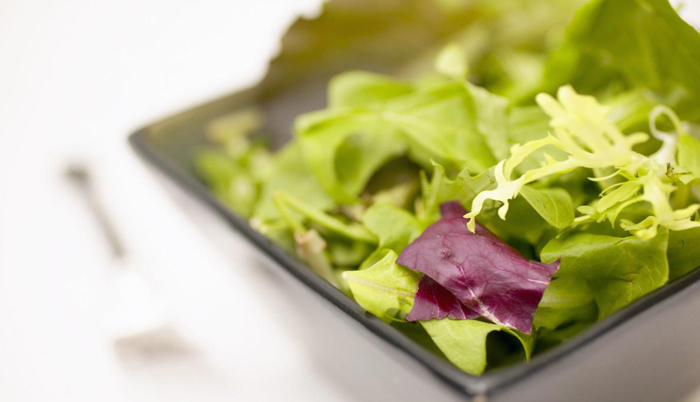![]() Home > Lifestyle
Home > Lifestyle
Salad Makes Your Brain Younger: The Nutrient Boost Improves Memory, Prevents Dementia, Study Finds

![]() September 6th, 2018 | 10:11 AM |
September 6th, 2018 | 10:11 AM | ![]() 377 views
377 views
NATURALNEWS.COM
You may want to start eating at least one serving of salad to make your brain younger as a study found that eating salad or a serving of leafy greens every day can enhance memory and make the brain function a decade younger, according to an article published in The Daily Mail.
“Projections show sharp increases in the percentage of people with dementia as the oldest age groups continue to grow in number, so effective strategies to prevent dementia are critical,” said Martha Clare Morris, an author of the study.
For the study, a team of researchers from Rush University Medical Center in Chicago examined 960 individuals with an average age of 81 who did not have dementia. They observed the participants for an average of 4.7 years. As part of the study, the participants were tasked to accomplish a survey on how frequent they ate specific foods. Moreover, their thinking and memory skills were tested every year during the study period.
The questionnaire included questions on how frequent and how many servings they ate of three green, leafy vegetables – spinach, with a serving being a half cup of cooked spinach, kale, collards, or greens, half cup cooked – and a lettuce salad with a serving of one cup uncooked. Then, the participants were assigned to one out of the five groups based on how frequent they consumed green, leafy vegetables. The participants in the top serving group ate an average of approximately 1.3 servings of greens a day, while those in the lowest serving group consumed an average of 0.1 servings a day. The researchers also considered other factors that could affect brain health, such as smoking, high blood pressure, obesity, education level, and amount of physical and cognitive activities.
The results showed that the overall scores of the participants on the thinking and memory tests declined over time at a rate of 0.08 standardized units per year. Over 10 years of follow-up, those who ate the most leafy greens had a slower rate of decline by 0.05 standardized units per year compared to the rate of those who ate the least leafy greens. The participants who ate at least one serving of green leafy vegetables a day had a slower rate of decline on tests of memory and thinking skills compared to those who barely or never ate leafy green vegetables. The findings of the study indicate that consuming at least one serving of green salad a day may be associated with a slower rate of brain aging, which is the equivalent of keeping the brain 11 years younger.
However, Morris noted that the study only shows an association between consumption of green, leafy vegetables and brain aging. In addition, she warned that the study cannot rule out other possible reasons for the association. The findings of the study were published in the journal Neurology.
Other ways to eat a meal with leafy green vegetables
If you are not a fan of leafy green vegetables on salad, there are other ways on how to enjoy a meal with leafy greens, according to the U.S. Department of Agriculture. One of these ways is to make a wrap with tuna, chicken, or turkey, then add romaine lettuce, spinach, arugula, and other vegetables for some additional flavor. Another way is to add the leafy greens with larger, tougher leaves such as collard greens, kale, or mustard greens to soup. Chopped spinach, bok choy, or broccoli can be added to chicken or tofu stir-fried with olive oil with some garlic, onion, or ginger. Leafy green vegetables can also be steamed until they are slightly soft or can be added to an omelet
Source:
courtesy of NATURALNEWS
by Michelle Simmons
If you have any stories or news that you would like to share with the global online community, please feel free to share it with us by contacting us directly at [email protected]